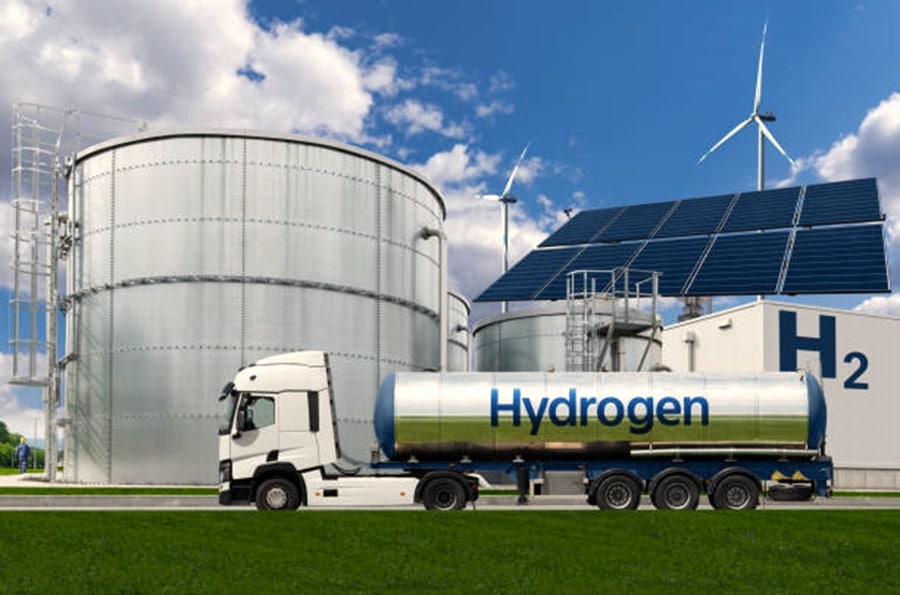Australia has a unique opportunity to become a global leader in the net zero economy. With abundant renewable energy resources and critical minerals, Australia is well-positioned to capitalise on the growing demand for low-carbon products and services.
However, transitioning to a net zero economy will require significant changes to Australia’s industrial sector. This article will discuss the opportunities and challenges of this transition and how Australia can make the most of its clean energy future.
The net-zero economy
The net-zero economy is an economy that has achieved net zero greenhouse gas emissions. This means that any greenhouse gases emitted into the atmosphere are balanced by an equivalent amount being removed. Achieving net zero emissions is essential to limit global warming to 1.5 degrees Celsius, which is the goal of the Paris Agreement.
The transition to a net zero economy will create significant economic opportunities. The International Renewable Energy Agency (IRENA) report found that the net zero transition could create up to 90 million new jobs globally by 2050. In Australia, the transition could create up to 250,000 new jobs in renewable energy, energy efficiency, and clean technologies. Read more about Australia: Net Zero Emissions Target By 2050.
Are you looking to save money on your electricity bills and reduce your carbon footprint? Solar energy is the perfect solution! Energy Matters can help you get up to 3 FREE solar quotes from pre-qualified and vetted solar firms in your area.
Energy Matters has been a leader in the renewable energy industry since 2005 and has helped over 40,000 Australian households in their journey to energy independence. With Energy Matters, you can be sure you’re getting the best possible deal on solar energy. We only work with reputable solar firms with a proven track record of delivering high-quality solar systems.
Comparative advantage in a clean future
Australia boasts a unique advantage in renewable energy resources, with vast potential for solar panels and wind power generation. This position, coupled with significant reserves of critical minerals, positions us to be a global leader in the net zero energy Australia market. Moving towards a zero emissions Australian future necessitates three major shifts:
- Phasing out fossil fuels: This entails ending the extraction and production of fossil fuels and transitioning towards clean energy sources.
- Decarbonising existing industries: Steel, cement, and other heavy industries must undergo significant transformations to reduce their emissions footprint.
- Scaling up new industries: Rapidly developing sectors like critical minerals, renewable hydrogen, green ammonia, and green metal production will be crucial.

Key findings and opportunities
- The global shift towards net zero: Leading nations aim to reduce emissions by 2030, driving investments away from fossil fuels and towards clean technologies.
- Pricing pollution: Carbon pricing mechanisms are becoming increasingly widespread, prompting industries to internalise the cost of emissions.
- Low-carbon supply chains: The dominance of low-carbon supply chains necessitates substantial investments in renewable energy and clean inputs like green hydrogen.
- Australia’s renewable energy advantage: Our abundant solar and wind resources offer the potential to become a major exporter of clean energy and critical minerals.
- Green metals for a sustainable future: Producing green metals domestically from readily available resources can secure our economic future and contribute significantly to global climate goals.
- Decarbonisation opportunities across industries: Existing sectors like aluminium smelting and mining offer immediate emission reduction opportunities through electrification and renewables.
- Renewable hydrogen: a multi-faceted solution: Hydrogen production powered by renewables can decarbonise various industrial processes and create export opportunities.
- Green ammonia, fertilising the future: Replacing polluting gas with green hydrogen in ammonia production offers environmental and economic benefits.
- Investing in Research and Development (R&D): Further research and development are crucial for fully decarbonising even the most challenging industries like cement production.
- Industrial heavyweights leading the charge: States like Queensland are actively trialling new production methods and exploring export opportunities in green hydrogen, ammonia, and critical minerals.

Power your home with the sunshine above and the wind at your back! Ditch the grid or off-grid and embrace clean energy independence with a customised solar + wind + battery storage system.
Energy Matters connects you with 3 FREE solar quotes from local, vetted installers, ensuring you get the perfect fit and the best price. Click and unlock the future of energy today!
Policy reforms for a net zero future
- Incentivising innovation: Reforming national laws can encourage industrial innovation and ensure our industries remain competitive in a net zero world.
- Strengthening the safeguard mechanism: Effective reform of this policy regulating major emitters is vital for driving genuine emissions reductions while fostering growth in key sectors.
- Prioritising genuine reductions: Offset mechanisms should be used judiciously, ensuring priority is given to actual emissions reductions.
- Protecting existing industries: Reforms should safeguard established industries like steel, aluminium, and cement from being undercut by new, highly polluting projects.
The role of government in the transition
The Australian government can play a key role in supporting the transition to a net zero economy by:
- Providing financial assistance to businesses to invest in new clean technologies.
- Setting clear and ambitious emissions reduction targets.
- Reforming regulations to make it easier for businesses to adopt clean technologies.
- Investing in research and development of new clean technologies.
Source: Climate Council
A future powered by clean energy
Australia’s journey towards a net zero economy is demanding, but the rewards are substantial. By transforming its industries, embracing innovation, and fostering collaboration, Australia can unlock a clean energy future, mitigate climate change, and create a more sustainable and prosperous nation. The choices made today will define the trajectory of this transition, shaping the legacy Australia leaves for future generations.
Going solar
Are you looking to save money on your electricity bills and reduce your carbon footprint? Solar energy is the perfect solution! Energy Matters can help you get up to 3 FREE solar quotes from pre-qualified and vetted solar firms in your area.
Energy Matters has been a leader in the renewable energy industry since 2005 and has helped over 40,000 Australian households in their journey to energy independence. With Energy Matters, you can be sure you’re getting the best possible deal on solar energy. We only work with reputable solar firms with a proven track record of delivering high-quality solar systems.













































